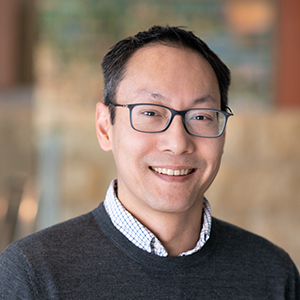The research community at the Institute includes visiting scholars, consultants, economists, research analysts, and research assistants. These scholars bring a diversity of backgrounds, interests, and expertise to research that deepens our understanding of economic opportunity and inclusion as well as policies that work to improve both.
The federal government began the Head Start program nearly 60 years ago to give young children born into poverty the tools needed to break out of poverty as adults.
Ever since, economists have been investigating whether the program has succeeded.
That investigation inspired research by Brenden Timpe, an Institute visiting scholar, and his colleagues. Using a dataset 10,000 times larger than what was previously available, they sought to provide a more definitive answer.
“The ultimate question of course is, Did this decrease poverty?” Timpe said. “For girls who went to Head Start, we found a pretty sizable decrease in poverty rates in adulthood. For boys, poverty didn’t change, but they were, in adulthood, much less likely to be receiving public assistance.”
These results are surprising because Timpe’s analysis focused on Head Start’s early years, when administrators were still working out a lot of the kinks, including difficulty hiring high-quality teachers. “Our work suggests that even a program that’s scaled up very quickly, when there are concerns about quality, even that seems to deliver some really meaningful benefits,” he said.
Being able to answer big policy questions in this way was one reason Timpe was drawn to economics. Of special interest to him are public policies affecting children and families, because childhood is a time when these policies can have significant and long-lasting impact.
More recently, Timpe has investigated the source of the widening pay gap between men and women when they become parents. His and his co-authors’ analysis of another large dataset found that women tend to stop working after giving birth and, upon returning to the job market, tend to end up at firms that pay them less. They were also likely to take part-time jobs and gravitate toward firms with shorter commutes or remote work. Men, however, tend to remain in the same firm longer and earn more over time.
These findings can be helpful to policymakers interested in reducing the pay gap, Timpe said.
The datasets used in both of Timpe’s recent research projects are large, and that means they may be able to answer more questions about Head Start and the gender pay gap. As an Institute visiting scholar, Timpe hopes to learn what makes a local Head Start program effective and if Head Start programs have continued to help children in more recent times.
This article is featured in the fall 2024 issue of For All, the magazine of the Opportunity & Inclusive Growth Institute
More scholar spotlights from this issue
Laura Gee —Giving math purpose and voice
Joseph Mullins—Putting children in the picture
Na’ama Shenhav—Empowered women, better outcomes for kids
Tu-Uyen Tran is the senior writer in the Minneapolis Fed’s Public Affairs department. He specializes in deeply reported, data-driven articles. Before joining the Bank in 2018, Tu-Uyen was an editor and reporter in Fargo, Grand Forks, and Seattle.







